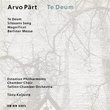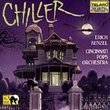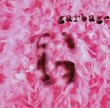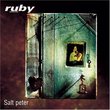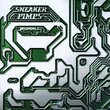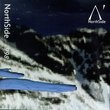| All Artists: Bradley Lubman, Paul Hillier, Steve Reich Ensemble, Theatre of Voices, Edmund Neimann, Edmund Niemann, Nurit Tilles, Lisa Moore, Andrea Fullington, Sonja Rasmussen, Alan Bennett Title: Steve Reich: City Life; Proverb Members Wishing: 4 Total Copies: 0 Label: Nonesuch Release Date: 10/15/1996 Genres: Jazz, Pop, Classical Styles: Avant Garde & Free Jazz, Vocal Pop, Chamber Music, Historical Periods, Classical (c.1770-1830) Number of Discs: 1 SwapaCD Credits: 1 UPC: 075597943023 |
Search - Bradley Lubman, Paul Hillier, Steve Reich Ensemble :: Steve Reich: City Life; Proverb
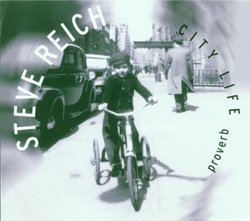 | Bradley Lubman, Paul Hillier, Steve Reich Ensemble Steve Reich: City Life; Proverb Genres: Jazz, Pop, Classical
|
Larger Image |
CD DetailsSimilarly Requested CDs
|
CD ReviewsPleasant sonorities running the emotional gamut from A to B Dr. Christopher Coleman | HONG KONG | 12/06/2000 (4 out of 5 stars) "I have great respect for Steve Reich and although I haven't liked everything he has done, he has composed pieces such as Come Out, Different Trains, and Tehillim which are, I believe, among the finest works of the century. He has continued to evolve stylistically while maintaining certain traits--his music is always rhythmically and sonorously interesting. I was stunned by Different Trains--it is a masterful, truly groundbreaking work in the way that it blends speech and music, and emotionally it is very effective. Come Out is similarly innovative and emotionally successful. Obviously not every piece by a single composer can be thus, but I have to disagree with the other critics here about the overall quality of the works on this CD. None of them break new ground--true, Reich uses live samplers on City Life, but that's been done for ages in popular music. And frankly, although they were all interesting for the moment, none of the pieces really engaged me the way other works of his have. I found my attention wandering, and one of the movements of City Life was downright annoying, influenced as it seems to be by rap. Old hat by now...There are three pieces on this disc. The first, Proverb, is reminiscent of Tehillim, although on a smaller scale. At something over 14 mnutes, it seemed too long for the musical material; but parts of it, particularly the beginning, are quite lovely. However, there is very little contrast in the piece--dynamics play almost no part whatsoever, tempo is consistent although there is some slight change in levels of rhythmic activity. Reich mentions the inspiration of Perotin, although he does not elaborate further; clearly this piece is free of Romantic gesture. Interestingly, this is the most dissonant of the three works--although it is tonal, Reich prolongs dissonances such as the minor second in a way which almost makes up for the lack of dynamic contrast. The performance is absolutely superb.The second piece, Nagoya Marimbas, is really here just for filler. Pleasant enough, it is short enough for the listener's mind not to wander, but again, not terribly engaging. Reich describes this as being virtuostic--well, yes in the sense that the players have to play lots of notes exactly in rhythm with almost no rests; but not in the sense that technique is shown off in displays of speed or range or musicality or dynamics or any of a host of means. Is a typist typing as fast as she can consistently virtuostic? Hmmm...City Life, a five movement piece, is the big work for the biggest, most complex ensemble here. The five movements do contain contrasts of timbre, of tempo and activity, and of dynamics, making the piece more engaging than the others to most listeners. Reich uses samples of city sounds: conversation, sirens, boat horns, and the like, and assembles them with conventional musical material that bears timbral, contour, registral, rhythmic and/or pitch similarities. This is much like his earlier Different Trains, and still works very well. Each individual movement is fairly short, and the five movements are assembled to create a successful whole, and a very nice and truly contemporary sonic picture of City Life. But as clever and as well done as this is, I just can't think of it as a truly important piece--it's more of An American in Paris than a Rhapsody in Blue. Still, all the performances are excellent, and this disc is worth a listen. Reich fans specifically and minimalist fans in general will definitely want a copy and will probably disagree with me on the ultimate quality of the works. But if you just say everything is the best, you don't really mean "the best". Even Beethoven had his "Wellington's Victory"." Composer-journalist's observations become chilling prophecy Samuel Richmond | Vancouver, BC, Canada | 09/17/2001 (5 out of 5 stars) "For the past twelve years Reich has labored in the shadow of his unassailable masterpiece, "Different Trains." Both its concision and its monumentality made that sampling exposition of Holocaust testimony the standard for the work Reich has accurately if immodestly claimed he was "born to do." His more recent recorded compositions such as "The Cave" and the three works on this disc-- less visceral and emotional, perhaps, but no less powerful of insight-- have been less uniformly well received. In particular, "City Life" has been marginalized by some as a found-sound exercise in banality, utilizing performance techniques that sounded dated when the piece premiered in 1995. The reason critics need to give it another listen has little to do with the awful coincidence in Reich's climactic choice of the earlier World Trade Center bombing aftermath as a sample source. It has a lot more to do with the sobering atmosphere progressively achieved throughout the first four movements-- a precarious balance of despair and indifference, equipoise and terror. Had this music reflected the events of 2001 rather than 1993, its composer needn't have changed a note. With almost surgical understatement, Reich distills his stylistic hallmarks-- crystalline architecture, slow-burn intensity, razor-sharp asentimentality, and inexhaustable rhythmic drive-- into a musical observation of urban rage, unsparingly linking individual discontent to mass destruction. No sides are taken here. Often skeptical of a composer's entitlement to expression for its own sake, Reich has always despised and successfully avoided musical agitprop. And just as he has from "Come Out" to "Different Trains," in "City Life" he provides something better, something more necessary: an indelible reflection of the ghost face of violence at the turn of the twenty-first century. Perhaps if one tenth of the people rushing to purchase Lee Greenwood's "American Patriot" listened carefully to Reich's "City Life," there might be a measurably clearer consciousness of what has changed life in the United States, and the resentments and complacencies that have fueled those changes." Evidence that Reich's music continues to pleasantly evolve. Samuel Richmond | 02/21/1999 (5 out of 5 stars) "Avid listeners of Reich will recognize how this album is an evolution from his earlier minimalist tendencies, making for an incredible listening experience. Having many Reich CDs in my collection, "Proverb" is arguably my favorite work - it takes the type of attention to space from earlier works such as "18" or the Counterpoint series and guides it in a newer and fresher direction, filled with quiet beauty, grace, and peace. "City Life" can be seen similarly as an extention from "Different Trains", using samples from the people and sounds of New York City to describe the tragedy of the World Trade Center bombing. The piece is nothing short of brilliant. "Nagoya Marimbas" takes his earlier Phase works and makes it more complex, weaving melodies and harmonies in a rhythmically challenging close canon, giving the work the type of energy for which Reich is well known for and is often imitated, but unmatched. In short, this album is an essential for Reich and "post-minimalist" fans."
|

 Track Listings (7) - Disc #1
Track Listings (7) - Disc #1

